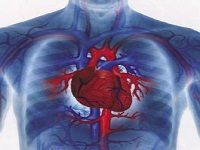Article
Transplanted Hearts with Histories of Cardiac Arrest Can Thrive
Author(s):
Researchers at Duke University discover that hearts from donors with histories of cardiac arrest can be successfully transplanted, sometimes with excellent outcomes.

The most effective treatment and often the last hope for patients with end-stage heart failure is a transplant. However, organ availability is a significant barrier, and even among potential candidates who have given consent to donate their organs, only 25 percent are actually used. While some donors are unsuitable, others die in circumstances where organ donation is impossible. In order to increase the number of available organs, most transplant experts indicate that increasing the donor pool is crucial.
Many organ donors have histories of cardiac arrest before becoming candidates to donate a heart, and transplant surgeons remain cautious about these organs. Although those hearts may meet standard functional criteria for transplantation, prior exposure to warm ischemia can be a problem, and procurement, storage, and transportation may cause ischemic injury.
To set the record straight, researchers at Duke University evaluated the impact of donor cardiac arrest on cardiac transplantation on a larger scale using the United Network for Organ Sharing (UNOS) Standard Transplant Analysis and Research files from October 1987 through March 2012.
The investigators included 21,383 heart transplant recipients — 930 of whom had received allografts from donors who had undergone cardiac arrest. While patients in both the Donor Arrest and No Arrest arms of the study were similar in terms of gender, sex, and comorbidity profile, those in the Donor Arrest group were more likely to have a gender or race transplant mismatch and intravenous inotropic support at the time of donor harvest compared to the No Arrest group.
Nevertheless, both 30-day mortality and overall survival between recipients of hearts with or without histories of donor cardiac arrest were similar. In addition, recipients who received hearts from donors with arrests that lasted less than eight minutes had significantly greater unadjusted survival compared to recipients in the No Arrest group. The authors postulated that this occurred because of ischemic preconditioning, as short ischemic episodes may protect the myocardium against a subsequent ischemic insult.
The researchers concluded that “hearts from donors with histories of cardiac arrest can be successfully transplanted with excellent outcomes in selected cases.” They reported that transplant surgeons should decide to accept or decline a heart after carefully considering both donor and recipient selection criteria.





